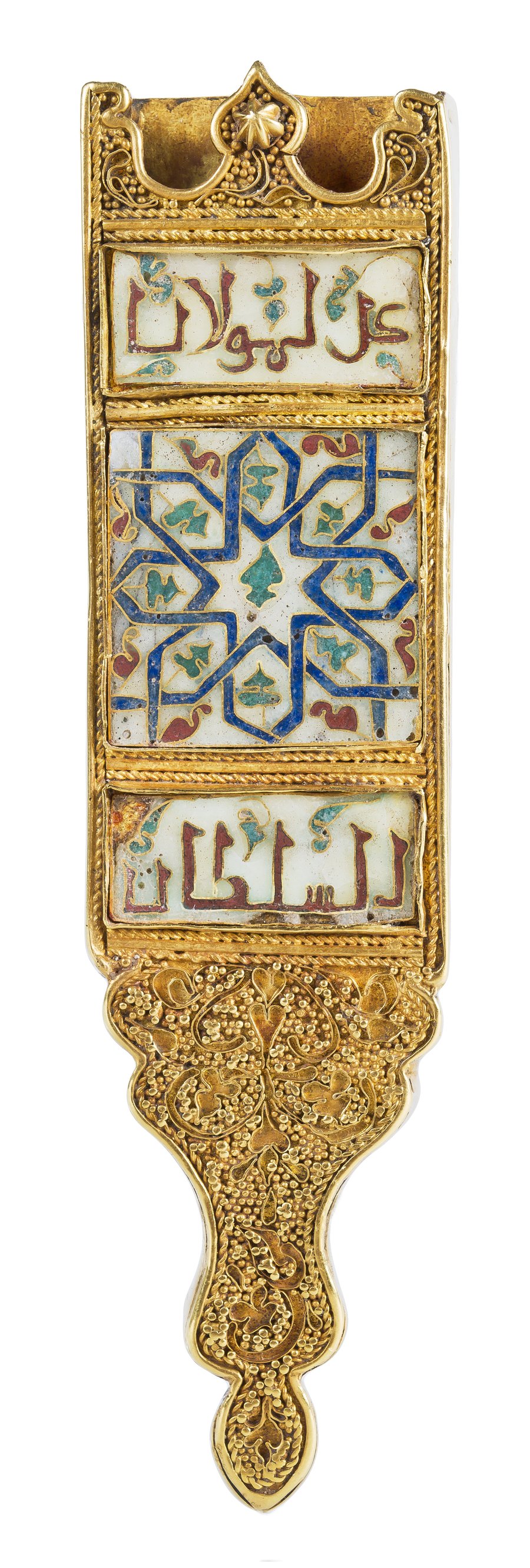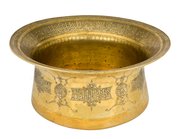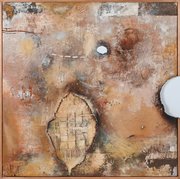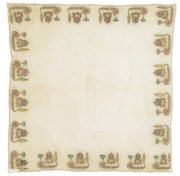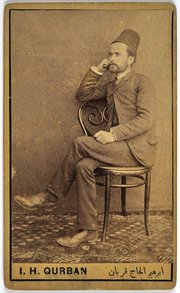
Belt Buckle
Museum of Islamic Art
- Title:
- Belt Buckle
- Production place:
- Granada
- Date:
- 1300 - 1399
- Period:
- Nasrid
- Title:
- Belt Buckle
- Production place:
- Granada
- Date:
- 1300 - 1399
- Period:
- Nasrid
- Material:
- Gold, Enamel, Solder
- Technique:
- Enamelling, Filigree, Granulation, Cloisonné, Soldering, Riveting
- Dimensions:
- 9.7 × 2.5 × 0.6 cm
This royal Al-Andalus belt buckle - of rectangular form with lobed and attenuated thumb-piece with filigree-work and granulation in the form of scrolling foliage – has three enameled panels, two containing Arabic inscriptions “'izz li-mawlana” (Glory to our Lord) and “al-sultan” (the Sultan), and a central one decorated with an interlocking motif featuring an eight-pointed star. This rare buckle is an example of the art of the goldsmith in 8th century AH/14th century CE Islamic Spain. The buckle combines the granulation technique (in which tiny spheres of gold, individually soldered, are clustered together) and cloisonné enamel (in which tiny particles of red, white and green glass are fused to metal within areas encased by gold wire). The quality of the goldsmith's work suggests a patron of the highest level, as confirmed by the royal inscription. The piece must have been worn either by the sultan himself or someone very close to him. Published records currently show the existence of only three other enameled pieces from 8th century AH/14th century CE Nasrid Spain, which are entirely made of gold. The rest of the extant production consists of either gilt silver or bronze.
